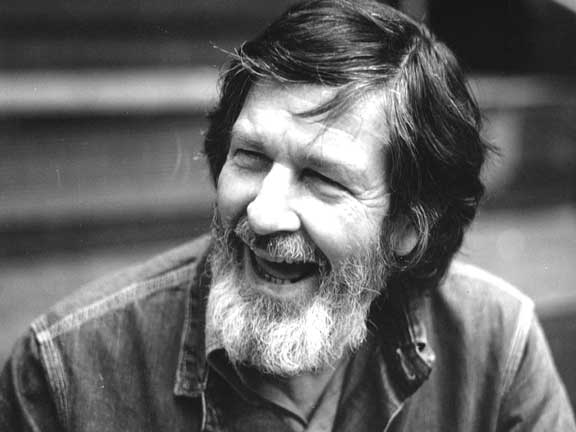
CONCERT XI
Sunday, February 12, 2012
University Capitol Center, 12:30-5:00 pm (map)
Riverside Recital Hall, 7:30 pm (map)
The CNM Ensemble
presents a
John Cage Celebration
including three concerts, afternoon and evening, and
a panel discussion featuring the
Director of the John Cage Trust, Laura Kuhn
|| download poster || download program ||
Program
12:30-1:30pm in 2780, UCC Break Room
Concert performance of Sonatas and Interludes (1946-48)
Patricia von Blumröder, piano
1:45-2:45pm in 2780, UCC Break Room
Panel Discussion
Nathan Platte, moderator (University of Iowa)
Patricia von Blumröder, (Frankfurt, Germany)
Mark Clague (University of Michigan)
Lowell Cross, (University of Iowa)
Laura Kuhn, Director, John Cage Trust
3:00-3:45pm in 2780, UCC Break Room
Concert performance of Lecture on Nothing (1949)
Mark Clague, narrator
4:00-5:00pm in entire upper floor of the UCC Mall
Concert performance of Musicircus (1967)
7:30pm at the Riverside Recital Hall
Center for New Music Ensemble Concert
First Construction in Metal (1939)
for six percussionists
Speech (1955)
for five radios and newsreader
Dan Moore
Andrew Thierauf
Mike Glaze
Aaron Ziegler
David Solomon
Christine Augspurger
Peter Naughton
Ashley Collins
44 Harmonies from Apartment House 1776 (1976)
for string quartet, arranged by Irvine Arditti
XIV. Brunswick-James Lyon
XV. Bellingham-William Billings
XX. O Give Thanks-James Lyon
XXX. Tempest-Andrew Law
XXXII. Litchfield-Andrew Law
XLIV. Bloomfield-Andrew Law
Megan Karls and Colleen Ferguson, violins
Manuel Tábora, viola
Eunkyung Son, violoncello
Forever and Sunsmell (1942)
for soprano and two percussionists
Janet Ziegler, soprano
Christine Augspurger and Andrew Thierauf, percussion
Six Short Inventions (1934)
for flute, clarinet, trumpet, violin, 2 violas and violoncello
Nora Epping, flute
Marjorie Shearer, clarinet
Dave Nelson, trumpet
Megan Karls, violin
Manuel Tábora and Megan Gray, violas
Eunkyung Son, violoncello
Chun-Ming Chen, conductor
Concerto for Prepared Piano and Ensemble (1950-51)
Grethe Nothling, piano solo
Nora Epping, flute/picc
Meghan Kimball, oboe
Sarah Wildey, English Horn
Marjorie Shearer and Lisa Marner, clarinets
Stephanie Patterson, bassoon
Dan Spencer, horn
Dave Nelson, trumpet
Jessica DuCharme, trombone
Shelby Kifer, bass trombone
Katharine Wohlman, tuba
Andrew Thierauf, Christine Augspurger, Mike Glaze and Aaron Ziegler
percussion
Matt Smart, second piano/celesta
Ann Fienup, harp
Megan Karls and Colleen Ferguson, violins
Manuel Tábora, viola
Eunkyung Son, violoncello
Michael White, double bass
David Gompper, conductor
Panel Bios
Bios for John Cage Celebration Panel
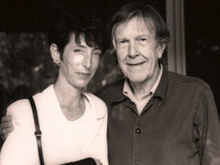
Laura Kuhn enjoys a lively career as an arts administrator, writer, editor, director, and performer. During graduate studies at UCLA, she worked with the infant terrible of lexicography Nicolas Slonimsky, inheriting the editorship of several of his musicological tomes, including Baker's Biographical Dictionary of Musicians and Music Since 1900. From 1986 until his death in 1992, she also worked with John Cage, providing assistance on a number of large-scale projects, including his Europeras 1 & 2, the subject of her 1992 doctoral dissertation. Upon Cage's death, she co-founded, with Merce Cunningham, David Vaughan, and Anne d'Harnoncourt, the John Cage Trust, which she continues to direct. In 2001 she created a theatrical realization of Cage's whimsical radio play, James Joyce, Marcel Duchamp, Erik Satie: An Alphabet, which subsequently toured throughout the world. In 2007, the John Cage Trust went into permanent residence at Bard College, where Kuhn serves as the first John Cage Chair in Performance Arts.
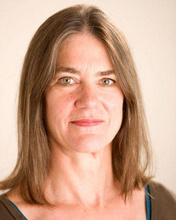
Patricia von Blumröder, born in Oakland, (California) studied piano at the University of Idaho, the University of Iowa and the Staatliche Hochschule für Musik in Freiburg, Germany. Concerts, radio broadcasts and television appearances in Europe and America have given her a reputation as an artist who does not confine herself to the traditional piano literature, but has a keen interest in the new music of the twentieth and twenty-first century. Her contemporary repertoire ranges from the piano music of the New Viennese School (Arnold Schoenberg, Anton Webern, Alban Berg) by way of the French modern music (Claude Debussy, Olivier Messiaen) to the key works in the post-war serial and experimental music (Karlheinz Stockhausen, Pierre Boulez, Luciano Berio, John Cage). She has been acclaimed in performances of Stockhausen's KLAVIERSTÜCKE, Messiaen's Catalogue d'oiseaux, the piano works of Boulez, and Cage's Sonatas Interludes; she has performed these and other compositions as a guest artist at music festivals in Paris, Lille, Leipzig, Hamburg, Salzburg, Fribourg and Zagreb, at the Alte Oper in Frankfurt am Main and at the Berliner Festwochen.
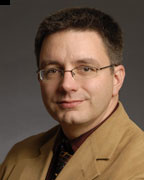
Mark Clague (Associate Professor of Musicology, University of Michigan) researches all forms of music-making in the United States, especially the classical tradition in Chicago, focusing on the functional aesthetic of music, critical geography, and the interrelationship of music and society. Professor Clague served as Executive Editor for Music of the United States of America for six years.
His articles appear in American Music and the Black Music Research Journal as well as the International Dictionary of Black Composers and The Encyclopedia of Chicago. He is at work on books for the University of California and Illinois Presses.
Professor Clague has presented papers at national meetings of the American Musicological Society, the Society for Ethnomusicology, the Center for Black Music Research, and Feminism and Music Theory and frequently lectures around the country. His awards include the University of Michigan's Stanley Medal, a Mellon Fellowship in the Humanities, the Wayne C. Booth Teaching Prize, and, most recently, the 2003 Wiley Housewright Dissertation Prize of the Society for American Music.
In May 2004, his LIVING MUSIC project was awarded a Teaching With Technology Fellowship by the Center for Research on Learning and Teaching. He has been a presenter at the Michigan School Band and Orchestra Conference and the University Provost's Seminar on Teaching.
Before joining the Michigan faculty, Professor Clague was bassoonist with the Chicago Civic and Rockford Symphonies and played periodically with the Grant Park and Chicago Symphony Orchestras. In March 2003, he performed André Jolivet's Concerto pour basson, orchestra a cordes et piano (1954) as the Concerto Competition Winner of the University of Michigan Campus Symphony Orchestra. He has given pre-concert talks for the Ann Arbor, Detroit, and Chicago Symphonies.
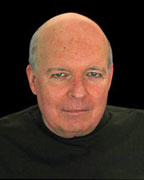
An American composer of electroacoustic and multimedia works that have been performed throughout the world, Lowell Cross is also active as an engineer and instrument builder.
Prof. Cross initially studied English and mathematics at Texas Tech University in Lubbock from 1956–61 and earned his first BA in these subjects. He also studied clarinet with Keith McCarty, composition and music theory with Mary Jeanne Van Appledorn and the history of art and architecture with Elizabeth S. Sasser there from 1961–63 and earned his second BA in music. He then studied electronic music with Gustav Ciamaga and Myron Schaeffer, ethnomusicology with Mieczysław Koliński, media and society with Marshall McLuhan, and musicology with Gerhard Wuensch at the University of Toronto from 1964–68, on a Woodrow Wilson Fellowship.
His honors include a Distinguished Alumnus Award from Texas Tech University (1986). His music has been performed throughout the world at several festivals, including twice at the ISCM World New Music Festival (1966, Stockholm; 1977, Bonn) and once at the Venice Biennale (1980). In addition, his multimedia works have been widely exhibited, including twice at the World Exhibition (video art, 1967, Montréal; laser projections, 1970, Ōsaka), for both of which he also utilized technological innovations of his own design.
As an instrument builder, he designed the audio panning device The Stirrer, for the simultaneous movement of four sounds in space, from 1963–65. He then constructed the 16-input/8-output electronic chessboard used by John Cage and Marcel and Teeny Duchamp in Reunion in 1968, a model of which he made a new version in 1999–2000. He has also assembled numerous devices for laser light shows since 1968, including the VIDEO/LASER I 4-color laser deflection system in 1969, the VIDEO/LASER II 4-color laser deflection system in 1969–70, the VIDEO/LASER III 4-color laser deflection system in 1971–72 (modified as a 6-color laser deflection system in 1980), and the VIDEO/LASER IV 6-color laser deflection system in 1979–80, all in collaboration with Carson D. Jeffries. Together with composer and pianist David Tudor, they gave the first public multicolor laser performance in Oakland in 1969. He later realized the light-projecting keyboard part of Prometheus: The Poem of Fire by Aleksandr Skryabin in 1975, using the VIDEO/LASER III system.
Prof. Cross is also active in other positions. He has been active as an engineer and producer since 1961 and has produced recordings for various labels, including Albany Records, Bridge Records, CRI, Music & Arts Programs of America, Orion, Philips, the University of Iowa Press, and Vienna Modern Masters. He installed an electronic music studio at Texas Tech University in 1961. Moreover, he has written numerous articles for American, French, German, and Spanish publications, as well as the book A Bibliography of Electronic Music (1967, University of Toronto Press; second edition, 1968, reprinted 1970).
He taught as Lecturer in Music at Mills College in Oakland in 1968–69, where he also served as artistic director of the Tape Music Center. He then served as both a teacher of and technical advisor in electronic music at the National Institute of Design in Ahmadābād, India in 1970, on a John D. Rockefeller III grant. He taught art and technology, musical acoustics, recording techniques, and other subjects at the University of Iowa in Iowa City from 1971–2002, where he was Professor of Music from 1981–2002. He has also given lectures and seminars in Europe and the USA, as well as in Canada, India and Mexico.
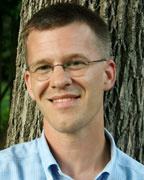
Nathan Platte received his Ph.D. from the University of Michigan, where he also completed bachelor degrees in history and trombone performance. Before joining the faculty at the University of Iowa he taught at Michigan and Bowling Green State University. His research interests include American film music, Russian and Soviet music, opera, music and agency, and musical adaptations across media. He has presented papers at national and international conferences, including the Society for American Music, Society for Cinema and Media Studies, and American Musicological Society. His articles and projects have received recognition from the University of Michigan (Louise E. Cuyler Prize in Musicology), Harry Ransom Humanities Research Center (Dissertation Fellowship), and Society for American Music (Mark Tucker Award).
Platte has published in Music and the Moving Image and 19th-Century Music and has forthcoming work in The Journal of Film Music and The Journal of Musicology. Other recent or forthcoming publications include The Routledge Film Music Sourcebook (Routledge, 2011; coedited with James Wierzbicki and Colin Roust), Franz Waxman's "Rebecca": A Film Score Guide (Scarecrow Press, 2012; coauthored with David Neumeyer), and articles in multiple anthologies, including The Oxford Handbook to Music in Film and Visual Media (Oxford University Press, 2012). He is presently writing a book on music in the films of David O. Selznick.